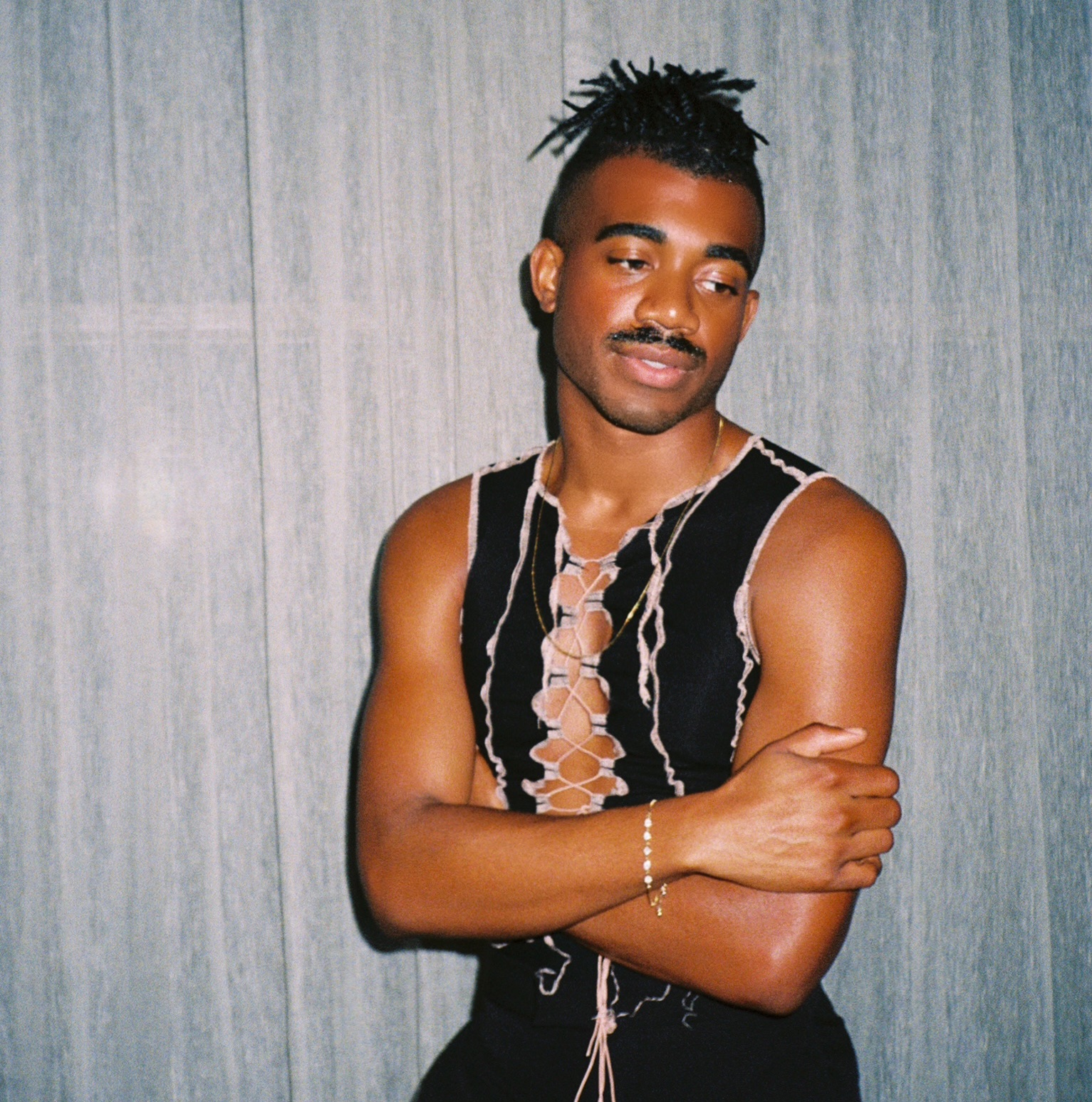Many artists, especially independent ones, often come with a voice and something to say, but lack other tools necessary for success, such as an eye for marketing, technical production skills or even songwriting ability. Signed artists often get this kind of support from their labels. But Bronze Avery, a 28-year-old Canadian and U.S. dual citizen, was already ahead of the game with a degree in advertising and public relations, and possessing prodigious musical abilities. Avery’s alternative pop sound pulls inspiration from various genres, such as rock, R&B and hip hop, to name a few. His advertising background helps him streamline his unique sound by visually capturing the depth of his artistry in cover art and music videos. These multifaceted layers of talent led to Avery becoming the 2021 inaugural Billboard NXT winner—a singing competition created by Billboard and Samsung to discover the next great unsigned artist through TikTok video challenges on the social media platform. Since winning, Avery released his debut album, SOFTMETAL, on Nov. 17.

Age: 28
Pronouns: He/him
Genre: Pop/Alternative
Sounds like: Being serenaded by an indie rock band lead singer with buttery vocals.
First song you should listen to: “Over (and Over)”
Credit: Justin Gilbert
Billboard NXT was the Los Angeles-based musician’s first time entering a competition. Avery had never tried anything like it before, because, according to him, he’s not naturally competitive and isn’t a fan of losing, either. It wasn’t until a couple of weeks before the finale that Avery thought he’d have a shot to win, and with the support of fans and the guidance of mentor Charli XCX, he came out on top.
“I love Charli XCX,” says Avery when asked what it was like to be mentored by his pop idol. About four years ago, Avery performed at the XCX’s Billy Ball. A one-night musical concert to fundraise for the cancer treatment of her friend, British musician Billy Clayton. The two also share mutual industry friends, but never chatted until Avery was a contestant. “It was nice to talk about music and our processes and see how similar they were. And I think she is so next-level beyond her years and will be a catalyst of inspiration for me forever.”
One significant change for Avery after winning was the chance to make an album. He always envisioned going the traditional route of being discovered, then signing to a label and releasing an album because that’s how Avery thought it had always been. But the music industry is kinder to indie artists these days. And winning placed him in the right position.
Avery created the exact body of work he wanted without the meddling of a label. Featuring a sultry pop and metal fusion, SOFTMETAL offers a glimpse into a situationship that took the singer for wild ride.
To Avery, the term SOFTMETAL represents a form of expression characterized by anger and emotional attachment. It’s also a play on his name, Bronze, a hard metal, while acknowledging his softer side, too. And under the right amount of heat, bronze can melt. Under the right amount of pressure, heat or emotion, Avery can also change form, too.
Below is a track-by-track review of the 33-minute sonically infectious record that is SOFTMETAL.
“Figure It Out”
This feeling of rage-fuelled angst rushes over you as the intro track “Figure It Out” begins to play. It is the most aggressive song on SOFTMETAL.
“I wanted to start the album mad,” says Avery. “Figure It Out” perfectly captures the feeling of being gaslit for being more emotional about a no-strings-attached relationship than the other person. “I just needed him to figure out what I was doing was normal,” he adds.
The accompanying music video showcases that aggression, veering away from Avery’s typical narrative-driven style by reflecting the song’s energy without anybody else in the video. In doing so, Avery’s emotions and intent are clear.
“Scariest Part”
Track 2, “Scariest Part,” is my personal favourite. It was the last song added to the album, but its origins date back to 2015, when the chorus was written:
Did I cut too deep?
Did I go too far?
Did I show your demons?
Press on your scars?
We’re not even at the scariest part.
When listening to the record, Avery knew it needed one more song to bridge the first track to the rest. “It’s so specific a placement, but I was like, ‘I need something a little bit faster and also something that drilled in the concept, a little bit more of the anger of SOFTMETAL,” Avery says.
The song is about what Avery thought he wanted from relationships, growing up and believing it was the best situation, but ultimately being hurt by it. The last chorus changes just so slightly, revealing Avery’s genuine fear that this dynamic holds so much power over him to invoke anger. But there’’s still love there:
’Cause my hands still bleed
From the broken shards
After everything
I still love you hard
Now I know we’re at the scariest part.
“Softmetal”
The catchy mid-tempo title track sits in the number three spot, capturing the album’s essence of duality. There’s a harsh, angry, sexy side that slowly merges into this emotional, honest and vulnerable side.
“Softshell”
Things slow down with the final single of the album, “Softshell,” as Avery’s dreamy vocals glide across an indie rock beat. “Softshell” is about picking yourself back up after being put through the wringer, and despite the scars and bruised shell, you will survive and thrive. Though Avery was sad about the situationship’s outcome, he wasn’t defeated; he focused on the good happening in other areas of his life. The chorus, co-written with his friend Robyn Dell’Unto, nails this perfectly:
I’ve been doing so well
In this soft shell, soft shell
Feeling it out
My hopes and my doubts
I’ve been doing well if you couldn’t tell.
“Songs are manifestations, and I don’t ever want to manifest weakness, so I want to be strong and have a good, inspiring message at the end,” says Avery.
“Over (and Over)”
Sonically, “Over (and Over)” is Avery’s favourite track on SOFTMETAL.
“This is a sound I’ve been trying to achieve for so long, this blend of these jazzy piano chords. It’s a pulsing house groove, and it’s very vocal-forward, which I think is so pretty,” Avery says. The track tackles the cyclical nature of romantic situationships that seemingly never go anywhere, but disproportionately drain so much time and emotion from those involved.
“Finding the balance of what is the truth between these two stories is the idea of the album,” he says. “As a songwriter, I know it’s pointed and very one-sided, and the other person doesn’t always get to share their experience. So, my job is to be as truthful as possible about how I feel and tell the truth between the two sides.”
In the second verse, Avery sings about these deferring realities: “We share the same time, but we still leave with two different stories/ I can’t erase it, but trying to face historical discrepancy.”
“Close to Me”
The tempo rises with “Close to Me,” a collaboration with Toronto duo Beach Season, inspired by the electro and rave style of London-based producer Fred Again. The track takes a couple of phrases and chops them up, focusing on making a cool, catchy song. Conceptually, “Close to Me,” is about how you can be livid, but still want to be close to the other person. Not everything is always great, but that tension can create closeness through adversity.
“I love working with Beach Season because they’re just so collaborative,” Avery says of the collaboration. “It was the first session I felt I could get on the computer, send ideas and produce back and forth. It was so fun to make music with them,”
“Crash Desire”
Avery keeps the high energy going at the album’s midpoint with “Crash Desire,” serving as the flip of a vinyl record that introduces side B of SOFTMETAL. The seventh track chronicles how the singer usually gets into situationships, which is fast. But it carries extra meaning for the artist. Avery performed “Crash Desire” on his final appearance during the Billboard NXT competition. “It’s my manager’s favourite. Everyone I play it for, it’s their favourite. So it feels like a huge song,” he says.
“Personal Attack”
Avery and Beach Season team up again for the infectious anthem “Personal Attack,” inspired by the relatable experience of being left in the club by the guy you came with. The track tells the story of Avery going to a popular club in Los Angeles, Akbar, with a guy and his friends. But when Avery sees the guy talking to another guy, he steps outside for a breather. The guy sees this and thinks it is a jealous reaction, leaving Avery without telling him.
Avery was devastated. “I had never been left in a club like that. I went outside in front of this little McDonald’s and sobbed.”
The following day, Beach Season sent over a Charli XCX-style beat that was originally slower. He sped it up and added an outro with his vocals, giving it the Bronze Avery touch, and “Personal Attack” was born.
“Take It Back”
“Take It Back” is sultry and sensual. Avery pleads for a reset to get the situationship back to an NSA sexual arrangement. But now all the relationship complexities make that difficult. Avery is willing to let go of the tension to keep their physical connection. It’s a fun, flirty, hot song, but through an angry yet annoyed lens.
“We should be fucking … it should not be this crazy. We’ve already had this experience, and it’s like, come on. ‘Don’t act like you don’t enjoy having sex with me,’” Avery chuckles.
“Play Dumb”
“Play Dumb” is a quick, true, diary-entry-style interlude pondering that if Avery were a worse person, he’d maybe have more things he wants—though, ultimately, he knows that to not be true. The track wasn’t initially intended for the album, but it resonated with fans, and “Take It Back” into the next track “Bible Name” didn’t flow. So he added the interlude with piano chords from “Bible Name.”
“Bible Name”
Track 11, “Bible Name,” co-written with his friend Robyn Dell’Unto about an old long-distance relationship during the COVID lockdown with a guy named David. The two spoke daily over text and FaceTime, with a lot of possibility for something more, but it ended abruptly. Though the two had only met in person once, Avery mourns the potential of what could have been:
Few months of talking every day
Your Seattle rain watering the thoughts growing in my brain
You know you hunted me down first
How’d it turn?
Why am I hurting now while you go get to be a saint.
The chorus, meanwhile, name-checks David directly, rescinding access to Avery:
I fell for a stranger with a Bible name
So, David, please don’t call me next time that you get to L.A.
Don’t worry; David signed off on his name being included, understands where Avery is coming from and is happy about the song.
“Say Goodnight”
Sitting at the 12th spot is the second single from the album, “Say Goodnight,” a funky, mystical, bass-heavy track. Avery wrote “Say Goodnight” with a twist: it’s about him from the perspective of the guy he was seeing.
Patterns show you’re crazy
You take it there
Too far for me lately
You can’t lock it down
Too close to you now
You fantasize
All I do with you is hope I get it right.
“Heaven + Hell”
Closing SOFTMETAL is track 13, “Heaven + Hell.” It’s the hopeful light at the end of the tunnel, as Avery takes what he’s learned from this situationship, now knowing more about what he needs from a partner and is excited to find new love. Initially, the track was written for an auto-tune rapper, but Avery decided to keep it for himself. It’s the perfect closer for SOFTMETAL. One of the debut project’s biggest strengths is the sequencing, and “Heaven + Hell” ties it together seamlessly.
SOFTMETAL is available now for listeners everywhere.


 Why you can trust Xtra
Why you can trust Xtra


